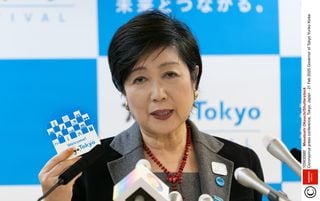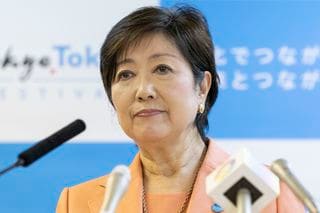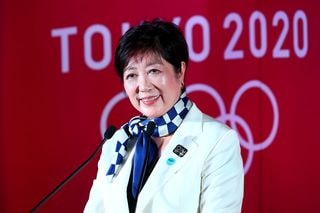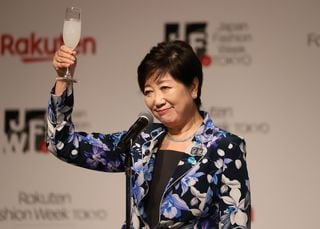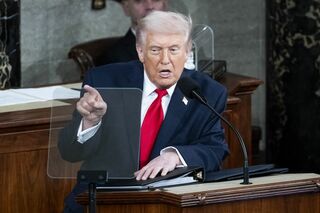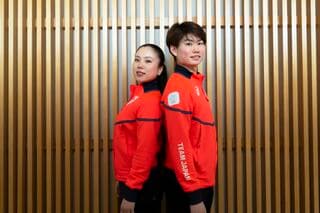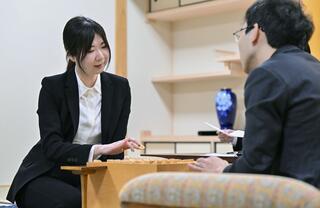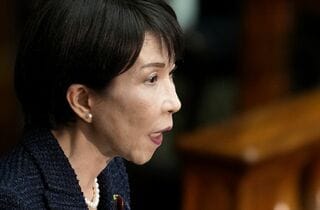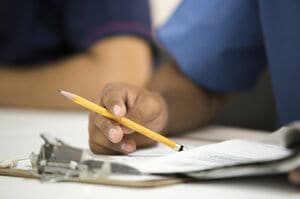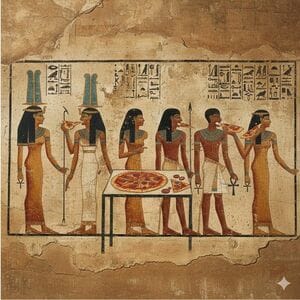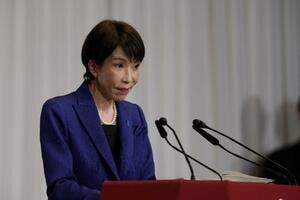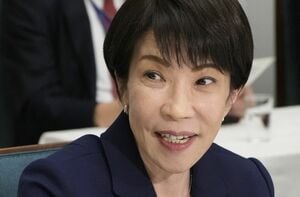"Elementary" level Arabic
To start with, I examined the level of Koike's Arabic.
At Cairo University, both lectures and exams are conducted in Arabic. Therefore, proficiency in Standard Arabic (“Fusha" in Arabic) which is used for reading and writing is essential. However in the "Fake CV" article, the former flatmate points out that Koike's Arabic was very poor and she could not have possibly kept up with the studies at Cairo University.
Unlike other languages, there are two types of Arabic; Standard Arabic and Colloquial Arabic. Standard Arabic is a written language used for reading and writing. It is also used as a spoken language in formal settings such as public speeches, official conversations, television news etc. Standard Arabic is identical in any region in the Arabic-speaking world. Colloquial Arabic is the Arabic language that people use in their daily lives and it varies by region. For example “How are you?" in Standard Arabic is “Kaifa haaluka?" and it is “Izaiyyack?" in Egyptian Colloquial Arabic and “Shrounack?" in the Colloquial Arabic in the Persian Gulf region. Arabic learners usually learn both Standard and colloquial Arabic. I did so, too. Professors and lecturers at Cairo University speak Colloquial Arabic in lectures but text books are written in Standard Arabic and exams are also in Standard Arabic.
To examine Koike's level of Arabic, I, together with several Egyptian journalists, watched some videos of Koike’s interview on YouTube in which Koike spoke without looking at transcripts (but perhaps she had rehearsals before some of the interview).
Verdict? We found that the level of Koike’s Arabic is better than being able to say a simple phrase such as "this is a pen" but a veteran Egyptian journalist says “Her Arabic is about the same level as that of a student who learnt elementary Arabic in Japan for six months. It is far from an acceptable level of university education in Arabic. Koike is particularly weak in Standard Arabic". I fully agree with this comment.
There are two good video clips to examine her level of Arabic. Koike probably spoke without rehearsals on these occasions.
One is a video of Koike’s conversation with a female Kuwaiti Minister Hind Sabeeh Barak Al-Sabeeh on Kuwait's state-run Channel 1.
https://www.youtube.com/watch?v=UOZltpS622o
This is an official occasion where you are supposed to speak Standard Arabic. But Koike started speaking in Egyptian Colloquial Arabic, saying "afteker" (I think). She then continues, "Today's meeting was a success, errr, fruitful (in English), and yaanii (a colloquial word used when you are stuck on a word, meaning “I mean"). She says “I'm the president of the Japan-Kuwait Friendship Association in Japan. At the same time, I was previously the Minister of Defense and the Minister of the Environment." She then leaned over to Minister Al-Sabeeh and said "We are monken (possible)..., yaanii," and then finally said "Errr, we are doing the same job (she almost misspoke "wazaa..." instead of “waziifa" once)...". Koike was comforted by her counterpart, "Saheeh, Saheeh (right, right)" (The Kuwaiti Minister is using Standard Arabic and looks stunned at Koike’s rudimentary Arabic). Koike then said "We have ... one problem, (then restated) problems that will arise ... as a Minister, mush kedah (isn't it?). This "mush keda" is also a typical Egyptian Colloquial expression. The expression you should use in this situation is "laysa kazaalik" in Standard Arabic. She continues “…but as far as the relationship between Kuwait and Japan is concerned, uhhh, erm, very, very good."
Her remarks lasted about a minute, but she says very little that makes sense. The expression she uses is very rudimentary such as "I am what", “There is what", “It is what". Her Arabic is very halting (sluggish), just like the Arabic of a student in an Elementary Arabic course at the American University in Cairo (AUC). At the Arabic Course at AUC, there are three levels i.e., Elementary, Intermediate and Advanced. I myself completed the Advanced course where students never speak Arabic in such a halting manner (but you need to continue learning Arabic for another year or two after you complete the Advanced Course in order to be able to keep up with university lectures conducted in Arabic).
The second video clip is when Koike met Libyan Colonel Gaddafi in 2009. Koike's office released this on YouTube.
https://www.youtube.com/watch?v=OzG9ztnBOZo
We can only hear Koike say in Arabic "…wa, haazaa Dr. Mairi...mumassil, mumassil! (…and this is Dr. Mairi...representative, representative!)" and "Laaba, laaba! (game, game!)". These remarks have hardly become a conversation. She says in English "These are for you (your friends?)" passing something like books to Gaddafi (Even such a very simple statement Koike uses English. The reason why she says “laaba" (game) might be she is handing books of something like Sudoku to Gaddafi.).
For anyone who speaks Arabic to some degree, Koike’s level of Arabic displayed in these two video clips must come as a surprise as it is hard to comprehend that she could have graduated from Cairo University with such rudimentary level of Arabic. In an interview with journalist Toshihiro Yamada, Ko Nakata (Ph.D., Cairo University, 1992) said that “Without connections to powerful people, Koike couldn't have graduated from Cairo University without much difficulty given the level of her Arabic." (“Weekly Post" magazine, 16 June 2017).
As Koike worked as a part-time tour guide in Egypt for travel agencies such as Green Valley which had many Japanese clients, she should be able to speak basic Egyptian colloquial Arabic such as "I am a tour guide", "We will be back here at one o'clock (to the driver)", "This is expensive. Make it five pounds!", etc. Her Arabic in the two video clips is roughly that level.
Koike claims that she worked as an Arabic interpreter after she returned to Japan. But even considering the number of years that have passed since then, it is hard to take her claims at face value. She could not have read or written Standard Arabic at university level. If she insists that she can, then she should prove it by talking in Arabic, for example, with Arab correspondents at the Foreign Correspondents’ Club of Japan without scripts or rehearsals. People possibly never forgets a foreign language that they studied for four years, passed dissertation-style exams every year, wrote graduation thesis and obtained a degree.

